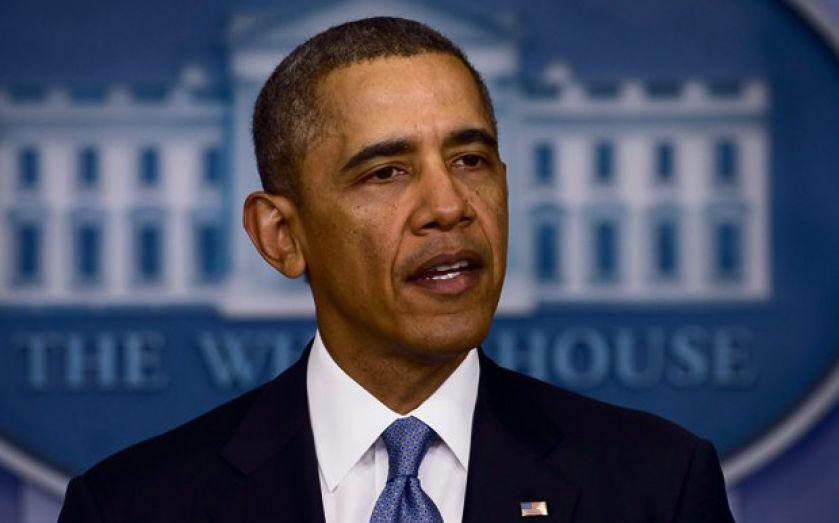Forget sanctions: Lame duck Obama is burying Pax Americana

AS AN old DC hand living in Berlin, I was kindly invited to hear Barack Obama speak there in 2008 by some of my old foreign policy frenemies in the Democratic Party. I was present when candidate Obama’s white-hot global fame reached its apogee. In front of an old Napoleonic war memorial stood the anointed one, along with 250,000 of his devoted fans.
To this day, I have never seen anything quite like it. After the speech, I asked my friend this pointed question: “Once you start governing, how can you possibly live up to all of this?” He smiled and replied that “we can’t, and that’s exactly what worries me.” Now, as some call out the end of the Pax Americana, and Russia throws its weight around in the absence of any strong US response beyond underwhelming sanctions, this serves as a fitting epitaph for the entirety of the Obama presidency. It is now all but over, despite the man having three years in the White House to go.
It is not possible to convey to foreign audiences just how big a political disaster Obamacare – the President’s signature healthcare reform – has come to be. The respected CBS News/New York Times poll illustrates how far our modern Icarus has fallen. Fully 59 per cent are disappointed in the Obama presidency, with only 40 per cent satisfied. Obama is precariously perched on the edge of political disaster, imperilling his ability to get anything done.
In such circumstances, second term presidencies tend, like water, to flow to the area of least resistance, often foreign policy, where Congress has fewer checks on a White House’s declining power than in domestic matters. Surely, with little left to lose, Obama will follow this familiar playbook?
It seems not. In terms of promiscuous military interventions, the Obama White House has tacitly acknowledged that, in the new multipolar era, America must eschew adventures where primary national interests are not at stake. That’s all well and good. Crucially, however, what it has not done is synchronise this more measured foreign policy with matching rhetoric.
This has led to profound global confusion, as the US talks as expansively as ever, while doing far less. It has been a recipe for utter failure. Libya remains a mess, Syria’s Assad has regained the upper hand, and Russia’s Putin plays chess in Crimea while the President’s men are playing checkers. America’s credibility as the guarantor of global stability has been called into question, as the White House speaks loudly, while carrying no stick at all.
But Obama does have one possible big geopolitical throw of the dice left: use the prospective ambitious free trade agreements with Europe and Asia to cement the US’s central position in the new era, while economically helping allies, isolating competitors like Russia and China (which lie outside such putative agreements), and re-emphasising America’s global economic centrality in the new age. Frankly, this is the last, best, chance for a badly burned administration to live up to a scintilla of its hype.
Tragically, they seem to be having none of it, primarily due to the President’s overweening weakness. To make the trade deals work, the White House would have to secure Trade Promotion Authority (TPA), allowing Obama to negotiate a deal that would be voted on up or down by Congress, without the possibility of amendment. No serious country wants to jump through hoops with the US to get a trade deal done, only to have Congress unpick the negotiations after the fact.
Herein lies the rub. The Democrats – who largely due to the President’s unpopularity are fighting for their life in the upcoming 2014 mid-term elections – are more protectionist that at any time in recent history. Senate majority leader Harry Reid, usually a key ally of the President, has made it clear he will not even bring TPA to the Senate floor in the near future, so toxic is such a move for the Party. Obama, chastened, seems content to back off. As such, do not look for any real movement on these two game-changing deals at least until after the mid-terms, by which time the window of opportunity could be shut.
All this is terrible news for both America and a world desperately in need of the economic and geopolitical good news the deals would provide. Hauntingly, it looks like another missed opportunity from an administration that will be known as a missed opportunity.
Dr John C Hulsman is president and co-founder of John C Hulsman Enterprises (www.john-hulsman.com), a global political risk consultancy. He is a life member of the Council on Foreign Relations, and author of Ethical Realism, The Godfather Doctrine, and most recently Lawrence of Arabia, To Begin the World Over Again.